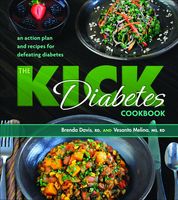Advertisement
Common Questions
Appears in
By Brenda Davis and Vesanto Melina
Published 2018
How can I get more comfortable eating beans and lentils when they cause gas?
Beans and lentils cause gas because they contain a very healthy type of carbohydrate (oligosaccharides) that isn’t broken down and digested in the small intestine. It makes its way into the large intestine and provides a feast for the bacterial inhabitants. Gas is a normal by-product of digestion. The following suggestions will help to keep gas production tolerable:
- Reduce the oligosaccharides in beans.
- Use fresh instead of dried beans, as their oligosaccharide content is much lower, or select canned beans, as canning reduces oligosaccharide content. Choose unsalted canned beans or rinse them well; rinsing will further decrease the oligosaccharides.
- Buy only as many dried beans as you can use within a few months.
- Soak beans for six to eight hours; discard the soaking water and rinse the beans well before putting them in fresh water and cooking.
- Sprout legumes before cooking them. Sprouting converts oligosaccharides into more-digestible sugars.
- Start with small portions, then gradually increase your intake. In this way, healthy gut flora will flourish and become accustomed to the dietary shift, and unhealthy flora will get crowded out.
- Cook beans thoroughly. When beans are undercooked, they’re more difficult to digest and lead to digestive problems.
- If you’re using canned beans, rinse them well.
- Select small legumes, as they are easier to digest. The least problematic are skinless, split legumes, such as mung dal (split mung beans), red lentils, and split peas. In general, these will produce less gas than large beans, such as lima or kidney beans.
- Pick options with fewer oligosaccharides. Choose tofu and bean products that are fermented, such as tempeh and miso.
- Use seasonings that counteract the production of intestinal gas. Black pepper, cinnamon, cloves, garlic, ginger, turmeric, and the Japanese seaweed kombu are all prized for their ability to diminish gas production.
- Improve your gut flora. Take probiotics in supplement form or use them in the preparation of fermented foods, such as vegan cheeses, yogurts, and other dishes.
- Avoid overeating. Eat smaller meals; stop when you are 80 percent full.
- Avoid foods with added fructose or sugar alcohols. The small intestine isn’t equipped to handle large quantities of fructose, so undigested molecules move on to the large intestine. Similarly, sugar alcohols, such as maltitol, sorbitol, and xylitol, are not completely absorbed and are fermented by bacteria in the colon.
- Consider a digestive enzyme supplement. Find one that is targeted toward bean digestion.

